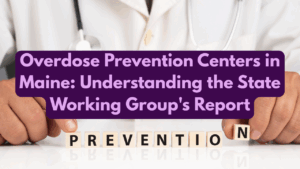
Hello, everyone! It’s time for an update on some recent events and initiatives that have been keeping me busy. Today, I want to share with you my involvement in testifying for three important bills before the Maine State Legislature. These bills address crucial issues such as funding for recovery community centers, rental assistance and guarantee programs, and rent stabilization. I firmly believe that these measures can have a positive impact on our community by supporting individuals in their recovery, providing stability for tenants, and ensuring access to affordable housing. So, let’s dive in and explore these bills in more detail.
LD1714: An Act to Create a Sustainable Funding Source for Recovery Community Centers Using a Percentage of the Adult Use Cannabis Tax Revenue
I’ve been working on testifying for three different bills to the Maine State Legislature. The first bill is LD 1714, which aims to create a sustainable funding source for recovery community centers using a percentage of the adult-use cannabis tax revenue. Recovery community centers play a crucial role in addressing the crisis of substance use disorder, and this bill would provide additional funding to support and expand their work. I testified in favor of this bill because I believe we need more of these centers to help people in their journey to recovery.
LD1710: An Act to Establish the Maine Rental Assistance and Guarantee Program and Amend the Laws Regarding Tenants and the Municipal General Assistance Program
The second bill, LD 1710, focuses on establishing the Maine Rental Assistance and Guarantee Program and amending laws regarding tenants and the municipal general assistance program. This bill aims to keep more people in their homes, especially during tumultuous times like when lease agreements end and rents increase significantly. Many families struggle to find affordable housing options that match their incomes, and this bill seeks to address that issue by providing assistance and stability.
LD1574: An Act to Create Rent Stabilization and Amend the Laws Regarding Termination of Tenancy and Rent Increase Limitations
The third bill I testified in favor of was LD 1574, an act to create rent stabilization and amend laws regarding termination of tenancy and rent increase limitations. This bill proposes putting a cap on annual rent increases. Rent hikes are limited to 7% over the Consumer Price Index. It also introduces guidelines for eviction notices and aims to provide stability for families, particularly in cases of no-fault evictions. Landlords would be required to give 90 days’ notice and compensate tenants with one month’s rent in such situations, which can alleviate some of the financial burdens tenants face when finding new housing.
During my testimony, I addressed the common argument made by landlords and real estate agencies that these measures would stifle investment. However, I questioned where the investment currently was. We have some of the oldest housing stock outside of New England, with a significant portion built before 1990. Many properties are not being properly maintained or improved despite the current system supposedly benefiting landlords. If landlords are truly investing, we should see a significant improvement in available housing, but that is not the case.
The system shouldn’t punish landlords who maintain a fair balance.
We must protect the small landlords who genuinely care about their tenants and maintain a fair balance between making a profit and treating tenants fairly. However, the large property portfolio owners who prioritize maximizing profits at the expense of tenants are causing significant problems. Housing is a basic necessity, and we need to ensure that greed does not undermine people’s access to safe and affordable housing.
Could affordable housing follow the student loan model?
Finding solutions to these issues is complex, and it requires collaboration among stakeholders. The government, both at the state and municipal levels, needs to actively engage in building affordable housing options. One possible approach could be to follow the student loan model. If individuals can borrow money from the federal government for education and have the flexibility to adjust payments based on their situation, why not apply a similar system to housing? Providing guaranteed loans without interest can help people secure homes without falling into a cycle of never-ending debt.
There’s an answer to the housing crisis. We need to work together to find it.
The current housing situation demands action. We need legislative measures that protect tenants, encourage responsible investment, and address the challenges faced by individuals and families seeking housing. Let’s work together to find solutions and ensure that housing remains a fundamental right for all. I’ll keep you all updated on the progress of these bills and any other developments in my housing journey. Until next time, take care, friends!







